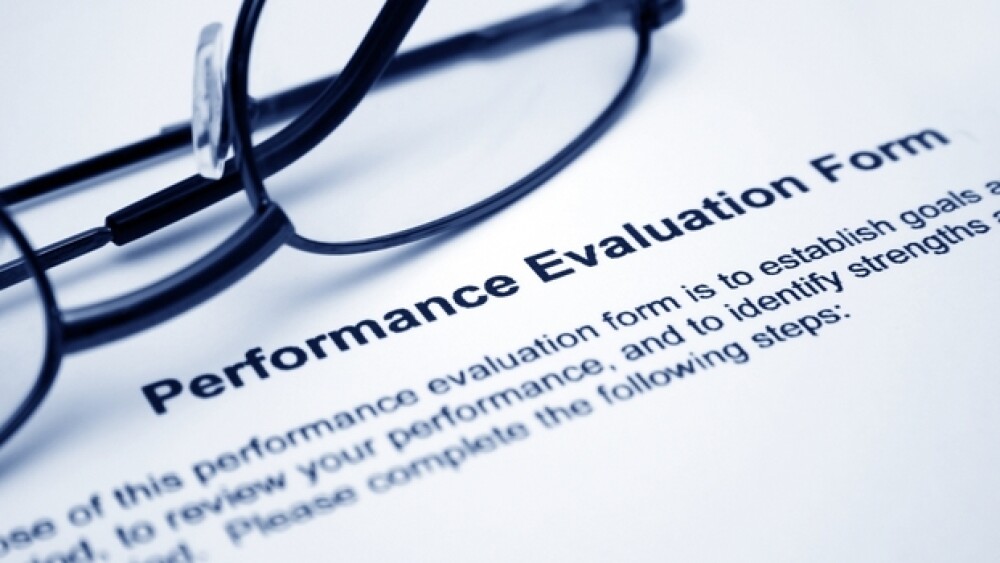Accomplishments are integral to the aspects of the annual performance review. And here’s how to prepare for review to admit a good performance record in the company.
Form for annual performance review of employees
For many job seekers, the first piece of prep advice for annual performance review defies physics: Turn back the hands of time. If you have NOT been brainstorming and tracking successes in the period leading up to your annual review, you will probably find yourself wishing time travel was a reality. On the flip side, if you have been monitoring your on-the-job achievements, you will likely find your review effortless to prepare for.
What is Accounted for Annual Performance Review
Your accomplishments offer the best evidence that you are not only doing your job, but perhaps doing it well and going beyond what’s expected of you.
Accomplishments are integral to both aspects of the annual performance review -- the dialog you have with your supervisor, and the self-analysis that many employers ask you to complete before sitting down with the boss.
The self-analysis/evaluation is your chance to truly prepare for your review and arm yourself with information that demonstrates a high level of performance to your boss. In fact, a self-analysis can be a self-fulfilling prophesy. Just by going in to your review having crafted an excellent, accomplishments-rich review of yourself can influence the employer to give you an amazing review. A performance review has been called an imperfect window into how others see us, but providing a glowing-but-honest self-review can influence how the employer sees you. Employers notice employees who spend time preparing for performance reviews.
Conversely, those who don’t prepare may not fare well in a review. Failing to document your results leaves you open to the employer’s interpretation about your work.
Be authentic in describing your accomplishments for the annual performance review. Even projects and initiatives that went well can usually use improvement. Authenticity lends credibility to your self-review. Prioritize accomplishments in your review to show the employer you know which are the “mission-critical” achievements.
Questions For Self Evaluation and to Improve Annual Performance Review
Following are some typical self-evaluation questions with prompts to help you identify areas in which you’ve shined and ways to optimize the way you communicate your responses:
Have your job responsibilities changed [since you were hired or since your last review]? Has your job’s scope expanded; have you taken on new responsibilities? Prompts: Have they changed because you took the initiative to expand your role? If they changed because you were asked to take on more/different responsibilities, how did you rise to the occasion? How did you go above and beyond?
How would you assess your own performance in executing your top three to five responsibilities, as well as the full scope of your responsibilities? Prompts: How have you performed compared to how you did in the past? How have you performed compared to others with the same responsibilities? What kinds of metrics can you attach to your performance?
How have you succeeded? During the past performance-review period, what contributions have you made? Prompts: Be sure to emphasize successes and contributions that align with the performance standards that have been set for you and that are most important to your boss. Think about metrics to enhance your successes and get goof annual performance review.
In what ways do you think you could have done something different and/or better? In what areas, if any, do you need to change or improve? Prompts: Consider what positive spin you can put on your self-improvement ideas. Try to accompany any self-criticism with a small success. Example: “I need to be more aware of my audience when I give sales presentations. This year, I made a flippant remark at the end of a presentation, and a customer in the audience was turned off. I rectified the situation by apologizing profusely. Since then, I’ve been much more careful to respect audience members and think before I speak. In fact, the same customer was in the audience at a recent presentation, and he complimented me on how well I connected with the audience.”
What strengths have you demonstrated on the job? Prompt: Use an accomplishment story to illustrate each strength. Again, focus on strengths that align with your boss’s and the organization’s priorities.
Describe working on a project team with others. Prompt: Be sure to make your team roles clear and give yourself sufficient credit while also crediting others. Choose accomplishment stories that emphasize interpersonal, communication, and teamwork skills.
What goals from the last review period have you accomplished? Prompt: Try a “sandwich” technique here. Let’s say you had a list of goals from the last review period. You accomplished some in a big way; others were lesser successes. List a major goal-achieving accomplishment first and last. In between, sandwich the smaller accomplishments. That way, you start big and end big with an extraordinary annual performance review.
Of course, the employer’s actual review or evaluation of you is the other component of the review process. Most forms for this process rate the employee in various areas on a scale. Some include a narrative section in which the reviewer can expand on the ratings given. Providing your boss with well-expressed accomplishments in your self-review can help him or her articulate your strengths in written narrative. If self-review is not part of the process at your organization, there’s no reason you can’t submit a self-review anyway at performance-evaluation time.
To ensure you prepare the most effective, targeted accomplishments for the annual performance review after your next one, ask your boss for specific goals for you to strive to reach.





